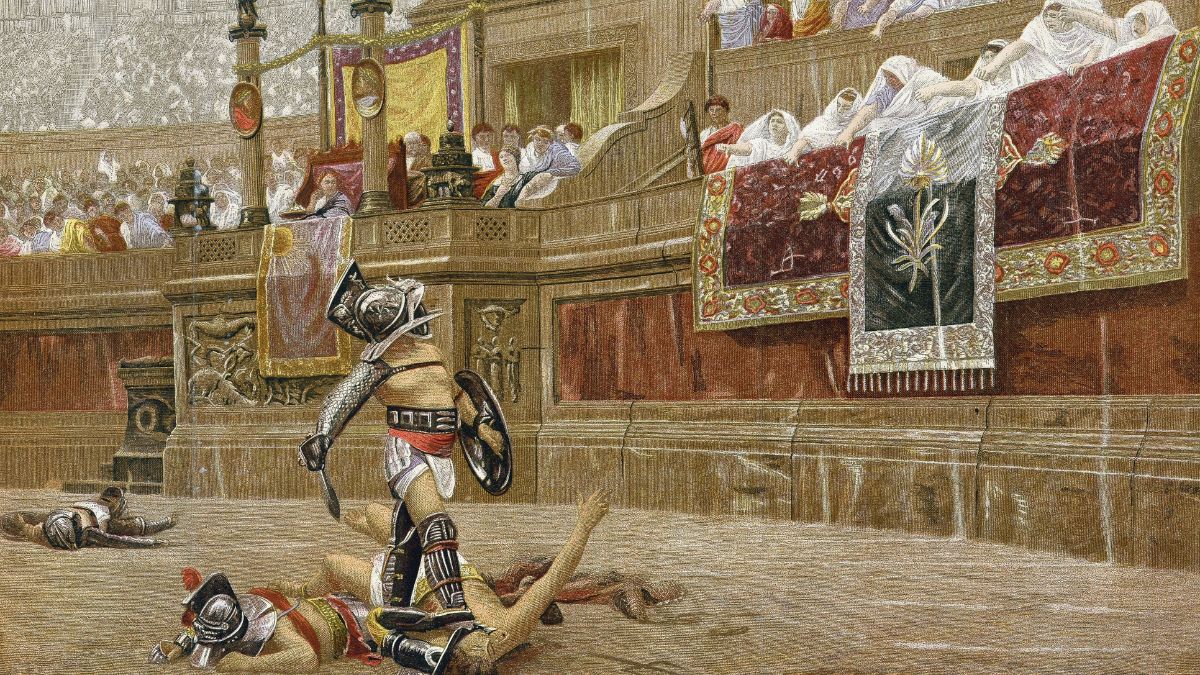Gone with the Wind: An Epic of the 1930s
Gone with the Wind: An Epic of the 1930s
“Gladiator” (2000): A Revival of the Sword-and-Sandal Epic

"Gladiator" (2000): A Revival of the Sword-and-Sandal Epic
In the year 2000, cinema witnessed the rebirth of a genre that had lain dormant for decades. “Gladiator,” directed by the visionary Ridley Scott, emerged as a thunderous call from the past, reviving the grandeur, drama, and valor of the sword-and-sandal epics that once dominated the silver screen. This film did not merely revisit the ancient world; it redefined it, enchanting audiences worldwide with a tale of revenge, honor, and redemption that resonates through the annals of cinematic history.
“Gladiator” is a masterpiece that transports viewers back to the Roman Empire’s majestic and brutal heyday. The story follows Maximus Decimus Meridius, portrayed by Russell Crowe in a career-defining performance, a Roman general betrayed by the corrupt Emperor Commodus, played with chilling malevolence by Joaquin Phoenix. Maximus’ journey from a respected general to a vengeful gladiator seeking justice for the murder of his family and his emperor is a narrative of epic proportions, filled with heart-wrenching emotion, breathtaking battles, and moral complexity.
The awe-inspiring opening sequence sets the tone for the entire film, as viewers are thrust into the chaos and glory of the Roman battlefield. Scott’s meticulous attention to detail, from the clashing of swords to the strategic tactics of ancient warfare, immerses the audience in a world that is at once beautiful and savage. The sweeping landscapes, the colossal architecture of Rome, and the gritty sands of the Colosseum are rendered with such authenticity that one can almost smell the blood and hear the roar of the crowd.
But “Gladiator” is more than just a visual spectacle. It is a story that tugs at the soul, exploring themes of power, loyalty, and the human spirit’s indomitable will. Maximus, in his quest for vengeance, becomes a symbol of resilience and integrity, earning the love and respect of the masses even as he confronts his own demons and the corrupting influence of power. His journey is a testament to the idea that one man can change the course of history, challenging tyranny with the sheer force of his character.
The film’s impact on cinema cannot be overstated. It reinvigorated interest in historical dramas, inspiring a new generation of filmmakers to explore ancient worlds with a level of depth and sophistication previously unseen. The performances, particularly Crowe’s and Phoenix’s, became benchmarks for actors in the genre, blending physical prowess with emotional depth to create characters that are as complex as they are compelling.
The score, composed by Hans Zimmer and Lisa Gerrard, adds an ethereal layer to the film, capturing the tragedy, the triumph, and the transcendental beauty of Maximus’ journey. It is a musical masterpiece that elevates the narrative, making the heart soar and the spirit ache in equal measure.
In conclusion, “Gladiator” stands as a monumental achievement in film, a beacon that lights the way back to the golden age of epic storytelling. It is a reminder of the power of cinema to transport us to another time and place, to make us feel the exultation of victory and the agony of defeat. Ridley Scott’s masterpiece did not just revive the sword-and-sandal epic; it reimagined it for a new millennium, leaving audiences awestruck and yearning for more. In the pantheon of cinematic greats, “Gladiator” reigns supreme, a testament to the enduring allure of stories that celebrate the resilience of the human spirit against the backdrop of history’s grand tapestry.